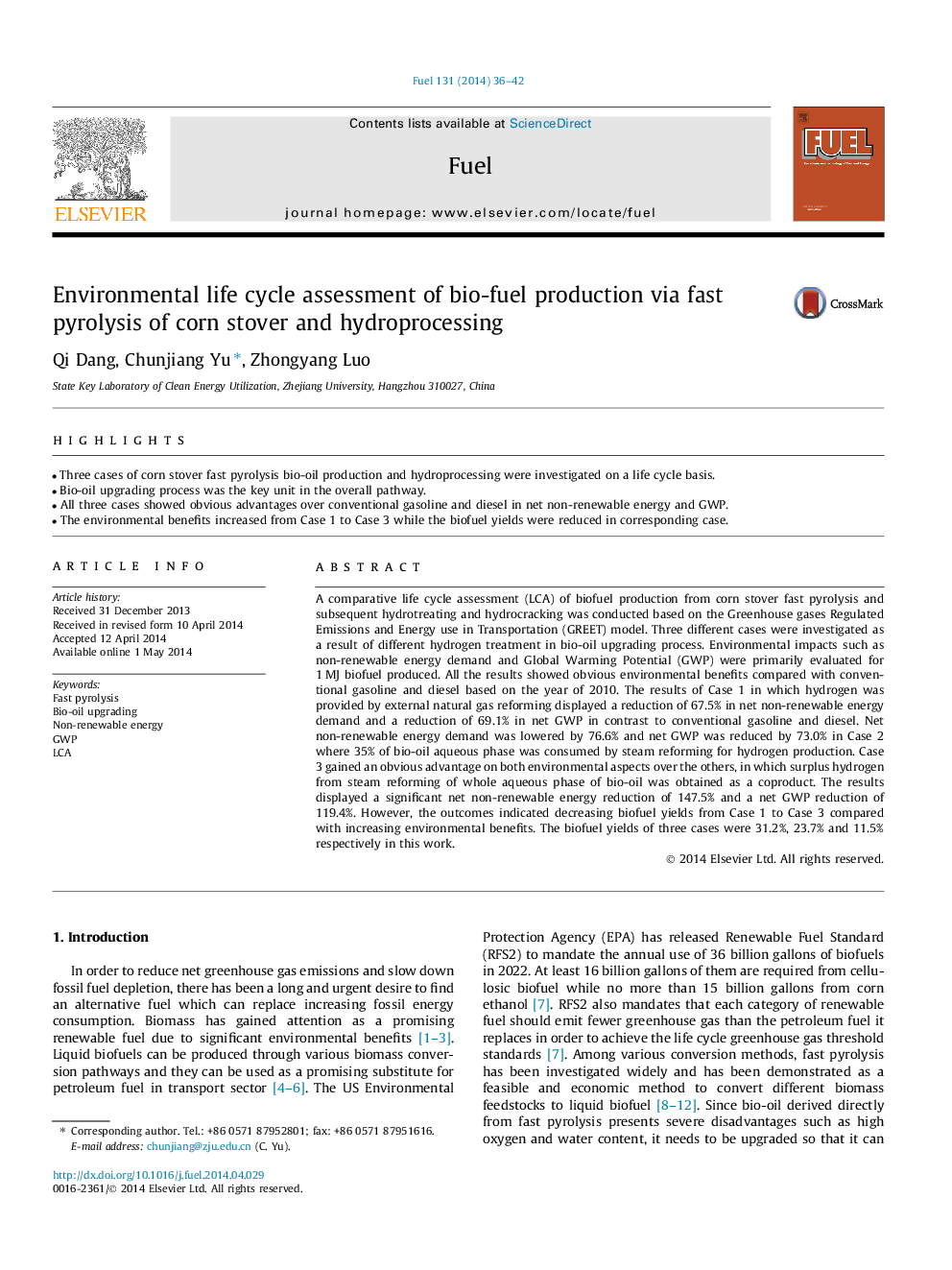| کد مقاله | کد نشریه | سال انتشار | مقاله انگلیسی | نسخه تمام متن |
|---|---|---|---|---|
| 206219 | 461150 | 2014 | 7 صفحه PDF | دانلود رایگان |
• Three cases of corn stover fast pyrolysis bio-oil production and hydroprocessing were investigated on a life cycle basis.
• Bio-oil upgrading process was the key unit in the overall pathway.
• All three cases showed obvious advantages over conventional gasoline and diesel in net non-renewable energy and GWP.
• The environmental benefits increased from Case 1 to Case 3 while the biofuel yields were reduced in corresponding case.
A comparative life cycle assessment (LCA) of biofuel production from corn stover fast pyrolysis and subsequent hydrotreating and hydrocracking was conducted based on the Greenhouse gases Regulated Emissions and Energy use in Transportation (GREET) model. Three different cases were investigated as a result of different hydrogen treatment in bio-oil upgrading process. Environmental impacts such as non-renewable energy demand and Global Warming Potential (GWP) were primarily evaluated for 1 MJ biofuel produced. All the results showed obvious environmental benefits compared with conventional gasoline and diesel based on the year of 2010. The results of Case 1 in which hydrogen was provided by external natural gas reforming displayed a reduction of 67.5% in net non-renewable energy demand and a reduction of 69.1% in net GWP in contrast to conventional gasoline and diesel. Net non-renewable energy demand was lowered by 76.6% and net GWP was reduced by 73.0% in Case 2 where 35% of bio-oil aqueous phase was consumed by steam reforming for hydrogen production. Case 3 gained an obvious advantage on both environmental aspects over the others, in which surplus hydrogen from steam reforming of whole aqueous phase of bio-oil was obtained as a coproduct. The results displayed a significant net non-renewable energy reduction of 147.5% and a net GWP reduction of 119.4%. However, the outcomes indicated decreasing biofuel yields from Case 1 to Case 3 compared with increasing environmental benefits. The biofuel yields of three cases were 31.2%, 23.7% and 11.5% respectively in this work.
Journal: Fuel - Volume 131, 1 September 2014, Pages 36–42
